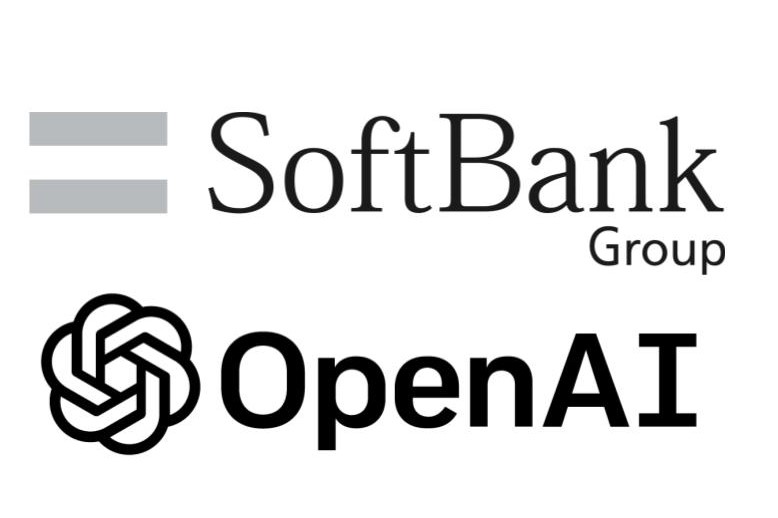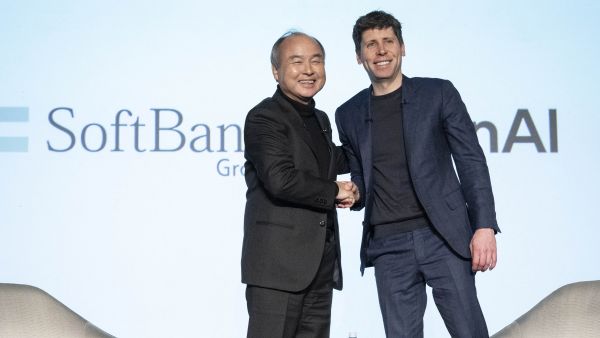With a SoftBank - Led $40B Investment, Can OpenAI Replicate ChatGPT's Success?
OpenAI has been making waves in rapid succession, captivating the tech world with back-to-back headline-grabbing developments. Just days after unveiling its latest 4o image creation tool, further solidifying its prowess in generative AI, the company is now on the cusp of closing a colossal funding round led by SoftBank Group Corp. This dual spotlight underscores OpenAI's relentless pace of innovation and its growing financial muscle, positioning it as a top force in the AI landscape.

$40 Billion SoftBank-Led Funding Round
OpenAI, the innovative force behind ChatGPT and earlier GPT models, is nearing the completion of a monumental $40 billion funding round, spearheaded by SoftBank Group Corp. This deal, which includes participation from prominent investors such as Magnetar Capital, Coatue Management, Founders Fund, and Altimeter Capital Management, is poised to value OpenAI at an impressive $300 billion. This valuation marks a significant leap from its October 2024 funding round, where it raised $6.6 billion at a $157 billion valuation, effectively doubling its worth in just a few months.
The funding round is structured in phases, with SoftBank initially injecting $7.5 billion and planning an additional $22.5 billion in 2025. Other investors are contributing $10 billion in the first phase, bringing the total to a staggering $40 billion—one of the largest private investment deals ever recorded. Reports indicate that the deal is expected to finalize soon, solidifying OpenAI's position as a leader in the generative AI sector.

This massive influx of capital comes at a pivotal moment for OpenAI. The company faces escalating costs tied to its ambitious AI development efforts, including the acquisition of advanced chips, construction of data centers, and recruitment of top-tier talent. Despite projecting revenues of $12.7 billion in 2025, OpenAI does not expect to achieve cash-flow positivity until 2029, highlighting the capital-intensive nature of its operations. The funding round provides the financial runway needed to sustain its growth trajectory and maintain its competitive edge in an increasingly crowded AI landscape. For SoftBank and its co-investors, this is a strategic bet on OpenAI's ability to continue driving AI innovation and capturing market share in a technology poised to transform industries globally.
What's Next for OpenAI?
With $40 billion in fresh capital and its newly released image creation tool, OpenAI is well-positioned to pursue bold initiatives on both technological and corporate fronts. What will be the top force in the AI industry do next?
Technological Advancements
On the tech side, OpenAI is likely to double down on its mission to advance AI capabilities. One potential focus could be the development of more efficient AI models—systems that deliver cutting-edge performance while reducing computational and energy costs. This would address both economic and environmental concerns, making AI more scalable and accessible. Beyond refining its core language models, OpenAI might explore new frontiers such as robotics, where AI could power autonomous systems, or healthcare, where it could accelerate drug discovery and personalized medicine.
A key project to watch is Stargate, a collaborative effort with SoftBank and OracleORCL-- to build expansive AI infrastructure. This initiative aims to create the backbone for next-generation AI applications, potentially enabling OpenAI to scale its systems to unprecedented levels. Stargate could position OpenAI as not just a software innovator but a foundational player in the global AI ecosystem, supporting everything from research breakthroughs to enterprise solutions.

Corporate Strategy
On the company front, OpenAI shows no immediate signs of going public, but its $300 billion valuation makes an eventual initial public offering (IPO) a plausible future step. An IPO could provide additional capital and broaden its investor base, though it would also introduce new pressures from public markets. For now, OpenAI appears focused on remaining private, leveraging its flexibility to prioritize long-term innovation over short-term shareholder demands.
Collaboration will likely play a significant role in OpenAI's corporate strategy. Existing partnerships with tech giants—like MicrosoftMSFT--, a long-time backer—could deepen, integrating OpenAI's AI solutions into more products and services. The Stargate project already signals a strong alliance with SoftBank and Oracle, and OpenAI might seek additional tie-ups with industry leaders to expand into new markets, such as finance, manufacturing, or education. These collaborations could amplify OpenAI's reach and accelerate the adoption of its technologies across diverse sectors.
Despite the optimism, OpenAI faces hurdles. The high cost of AI development remains a persistent challenge, requiring continuous investment in hardware, talent, and research. Competition is also intensifying, with rivals like DeepSeek demonstrating that powerful AI can be built more efficiently, potentially threatening OpenAI's dominance. Nevertheless, this $40 billion funding round reflects robust investor confidence in OpenAI's vision and its ability to navigate these challenges while shaping the future of artificial intelligence.
Expert analysis on U.S. markets and macro trends, delivering clear perspectives behind major market moves.
Latest Articles
Stay ahead of the market.
Get curated U.S. market news, insights and key dates delivered to your inbox.



Comments
No comments yet